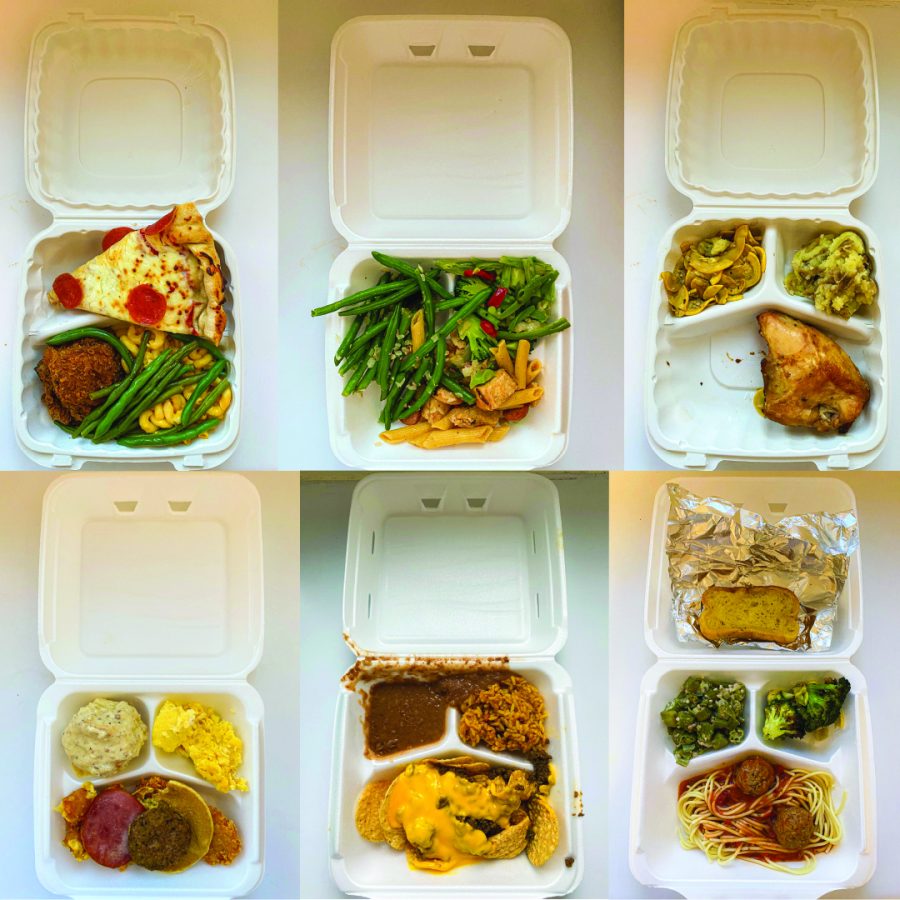COLUMN: Isolation was exhausting
February 17, 2022
As I walked towards the metal double doors of the 12th floor isolation ward, I was overcome with fear and anxiety. I didn’t know what the next five days had in store for me.
Equipped with a small suitcase of clothes, a backpack, and a throw blanket, I entered the room that I would call home for the better part of a week — alone.
The room was furnished with two twin-sized beds and a mini fridge. It was hopeless and bleak, but the view was nice.
As I dressed my bed with the thin, white sheets provided, I couldn’t help but feel so dull. Less than an hour before I landed in that room, I was fine.
I went to Starbucks, attended my virtual classes, checked my mail, had lunch with friends, and all of a sudden, what I thought was a common cold, had catapulted me into a box with four walls and two windows.
I was given thirty minutes to pack my things, and to say I was panicking, would be an understatement.
Needless to say, moving in was difficult and incredibly abrupt.
The first night was the hardest. As I watched the sun dissipate from the massive windows, the reality of my situation sunk in.
I laid my head on the stiff pillow and wrapped my body in my plush, pink blanket, and I did what I do best: I cried.
I cried because I was alone. I cried because I was cold. I cried because I was scared. I cried because I was hungry. I cried because I was stuck. I cried because there was nothing I could do about any of it. I cried until I fell asleep.
The next morning I awoke to the cawing of crows and the sun peeking up from the distance, and I was feeling quite accomplished when I rolled out of bed for my 9:00 a.m. Zoom class.
I had survived my first night in isolation.
There was a knock at the door, and I was greeted by a woman wearing hot pink scrubs and a mask-hidden smile. She held out a steaming, styrofoam plate and asked how I was feeling.
It had been less than twenty-four hours, and I was already elated to have some form of human contact other than through my computer screen.
My breakfast consisted of soggy pancakes, chewy bacon, and overcooked hash browns, but it was hot and hand-delivered, so I tried to keep my complaints to a minimum.
Besides, that’s all I was getting anyway.
Every day after that, I had become acutely aware of when my food would be delivered— thirty minutes after meal times began— breakfast at 9:30, lunch at 12:00, and dinner at 5:30.
Although I was grateful for the round-the-clock meals that were delivered, the food was mediocre, and I found myself starving at the end of each night.
I tried to ease my mind by watching reruns on Netflix, but the sounds of my growling stomach always shifted my attention, especially during the weekend when I was only given two meals a day.
I was told I could order food via Grubhub, but after a long break and a week of isolation without work, I couldn’t afford that, so I shut my eyes and tried to will the hunger away as I drifted to sleep.
By day three, my symptoms had started to catch up to me.
Even though my temperature never exceeded 99°, I still had a gut-wrenching cough that left me gagging and gasping for air, and every organ in my body was sore. It physically hurt to take a deep breath, and all I wanted to do was cry, but it hurt to do that too.
The mounds of schoolwork that was piling up didn’t help either. Even though the school had informed my professors of my sudden illness, I reached out to them personally, as well.
Many of their responses were supportive and understanding, but a few of my professors didn’t offer virtual options and gave little to no leeway with assignment deadlines.
It felt like I was drowning, desperately trying to keep my head above water, as the days passed achingly slow.
Left alone with nothing but my own thoughts, I couldn’t help but think the worst.
I felt this incredible worry, but I also felt this overwhelming guilt because I knew that I would probably make it out alive, but knowing that other people weren’t so lucky was hard to digest.
In a time when I needed the most support, all I received were daily email check-ins and sporadic phone calls about my symptoms from Student Health Services.
It was, by far, one the worst experiences of my life, and mentally, I was left spiraling.
On my last night, I packed all of my things before getting into bed on those thin, white sheets and laying my head on the rigid pillow for the last time.
Finally, 8:00 a.m. came. I grabbed my things, and I walked out, just as quickly as I had entered.
I got on the elevator with three other people, and my heart started to race.
I had no idea how to assimilate back to normalcy after being in isolation. I felt like a fish out of water, like a walking caution sign.
Even though no one knew what I had been through, I somehow expected a welcome back party from the world.
Standing in that elevator next to an unmasked stranger, I realized that even though my world had stopped for five days, no one else’s did. And that was a hard reality to face.
If the experience taught me anything, it’s to cherish everything— from waking up super early for morning classes to waiting in line at Starbucks just for them to be out of ingredients.
You don’t realize how important those mundane things are until you can’t do them anymore.








